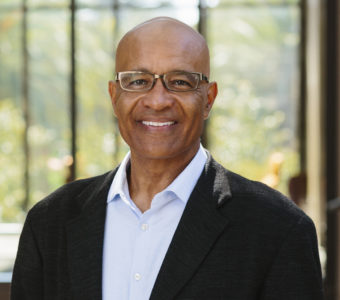Stanford’s Rick Banks on Race and the Rittenhouse Case
During Black Lives Matters protests after the police shooting of Jacob Blake in Kenosha, Wisconsin, Kyle Rittenhouse joined friends to “keep the peace,” as he has said, when evening protests became more violent. He was armed with a semiautomatic gun, and shot three protesters on August 25, he claimed in self-defense. Here, Professor Ralph Richard Banks, a race law expert at Stanford Law School, weighs in on the issues of race in the case.

Some have said that race had nothing to do with the case because Rittenhouse and his victims are white. Do you think that race played a role in the trial?
Because all the parties are white doesn’t mean that race did not play a role in the Rittenhouse trial and verdict. Yet there are so many variables that it is hard to unravel precisely how race might have played a role or how or why the outcomes might’ve been different had the race of other participants been different. One wonders whether Rittenhouse would’ve been acquitted had he been black.
The judge seemed very sympathetic toward Rittenhouse—
I certainly find it hard to imagine a black man roaming around with guns and shooting people receiving the sympathy of the jury and certainly not receiving the sympathy of an all or mostly white jury.
Critics noted that the jury was largely white, while the community is not. Might a more balanced jury have been more sympathetic to the arguments of the prosecution, i.e. that someone carrying a semiautomatic weapon in the streets is asking for trouble?
Rittenhouse’s tears on the stand might’ve been received differently had he been black, where the mere fact of his race might have inclined some people to view him as more violent and threatening.
What are your takeaways from the trial and verdict?
The case also raised other concerns. A protest that prompted Rittenhouse to want to go to protect property owners was in response to the acquittal of law enforcement officers in the shooting of another black man. So, one’s assessment of Rittenhouse might be tied to one’s assessment of the protest, which in turn is tied to one’s view of the acquittal of those officers.
Finally, we have as a backdrop to this case so much that occurs with respect to citizens and police in our nation—that we are a nation awash in guns. As it turns out, Rittenhouse violated no state laws even though he was a 17-year old taking a high powered semi-automatic rifle to the scene that night. Wisconsin, like so many other states, allows such weapons to be carried in public. Whether one supports or opposes such laws might affect one’s views of what occurred that evening as well.
Ralph Richard Banks (BA ’87, MA ’87) is Co-Founder & Faculty Director of the Stanford Center for Racial Justice, the Jackson Eli Reynolds Professor of Law at Stanford Law School, and Professor, by courtesy, at the School of Education. He teaches and writes about family law, employment discrimination law, and race and the law. Banks (@rrbanks) is the author of Is Marriage for White People? How the African American Marriage Decline Affects Everyone and is working on a book tentatively titled Meritocracy in An Age of Inequality: Race, Class, and College Admissions.
